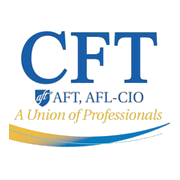Though both Wisconsin and California have been a solid shade of blue in electoral politics for over 20 years, there are nonetheless important differences in their governing styles. These distinctions, driven principally by the fact that Wisconsin has a Republican Governor, offer keen insights into the priorities of fiscal management between Republicans and Democrats.
Both states were hit particularly hard by fallout from the Great Recession. Unemployment increased, manufacturing withdrew, and economic growth was anemic. Governors Walker and Brown entered office staring at a wall of red ink from debts run up by years of political mismanagement and economic malaise. Both had no choice but to implement significant changes.
After California’s Jerry Brown was elected in 2010, he was immediately faced with a $26.6 billion budget gap. To address it, Brown instituted a combination of spending reductions and tax increases. There was virtually no choice but to cut spending – everything from primary education to welfare recipients to correctional facilities saw reductions in their allocations. Brown also successfully persuaded voters to pass Prop. 30, a “temporary” hike in income tax rates on the state’s wealthiest and an increase in the state’s sales tax rate. After the increases, the nation’s most populous state now boasts the country’s second highest income tax rate and the highest sales tax rate.
Wisconsin was similarly faced with dire financial straits. Governor Walker entered office in 2010 and was quickly faced with a deficit of $3.6 billion. To address the sea of red, Walker implemented structural reforms to the state’s economics. He reduced runaway spending, imposed targeted tax cuts to boost growth, and most controversially, sought to modify public sector union contracts. The result was the “Budget Repair Bill”, also known as Act 10. The Act required public sector employees to contribute a portion of their income to their pensions (previously they contributed little or nothing to their pensions), pay 12 percent of their health care premiums (previously they paid 6 percent), and most public employee unions would be unable to collectively bargain for wages. In addition, Act 10 eliminated the requirement for public sector unions to have their dues automatically deducted from their paychecks – instead, members would have to “opt in” to the union.
The results for both California and Wisconsin were significant; the fiscal fortunes for the respective Governors improved markedly. Though the resurgence of the stock market in 2013 as well as the rebound in housing certainly contributed to the turnarounds, the reforms also had clear impacts. California is expected to generate approximately a $4.7 billion surplus this year. Wisconsin, a smaller state with lower revenues and expenditures, is expected to have a surplus of $977 million.





